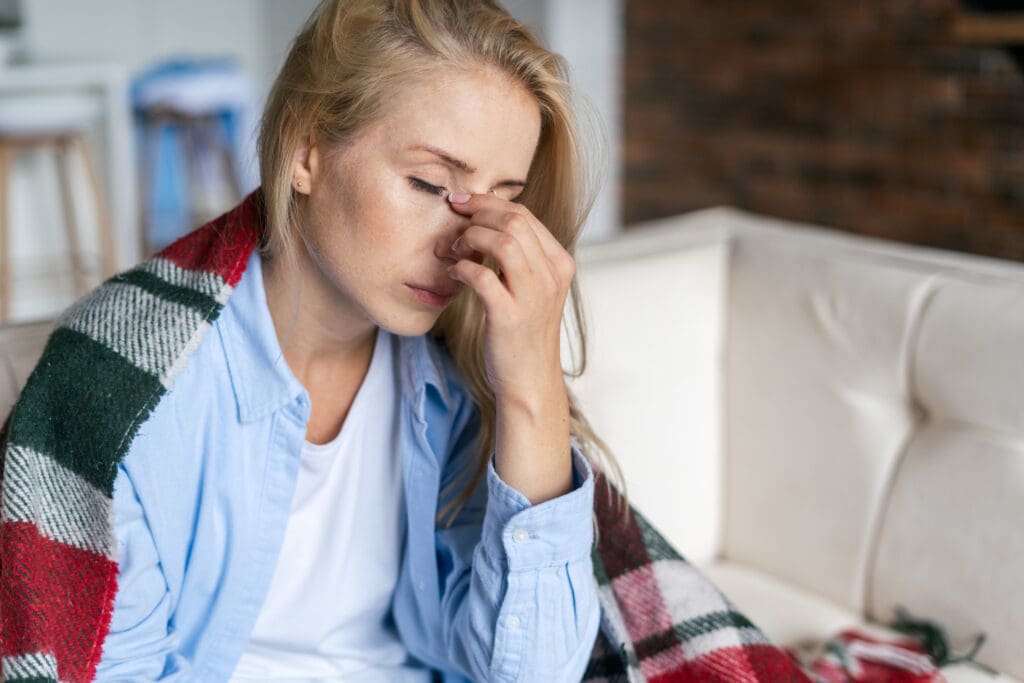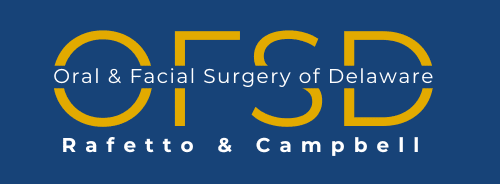Sleep apnea is a common sleep disorder that causes your breathing to stop and start while you sleep. Some patients with sleep apnea don’t realize they have it, but it can cause serious health issues without treatment. This condition can disrupt sleep, cause daily fatigue and moodiness, and other health problems.
If you think you might have sleep apnea, visit Dr. Conor Campbell for recommendations and treatment. Our dental services include oral appliance therapy for managing sleep apnea as an alternative to CPAP. Oral sleep appliances are an effective treatment option that can significantly improve your quality of sleep.

Common Risk Factors and Signs of Sleep Apnea
Does your partner complain about your loud snoring? Don’t ignore it because it could be sleep apnea. Here’s what to watch for:
- Loud snoring
- Choking or gasping during sleep
- Excessive daytime sleepiness
- Morning headaches
- Difficulty concentrating
- Irritability or mood swings
Knowing the warning signs and what puts you at risk can help you sleep better and feel better. After all, quality sleep is just as important as eating right and exercising. Some things can also increase the risk of developing sleep apnea. Being aware of these sleep apnea risk factors helps catch problems early so you can fix them before things get serious:
- Obesity: Carrying extra weight around the neck can put pressure on the airway. This makes it harder to breathe at night and raises the chances of sleep apnea. People who are overweight are more likely to have soft tissue around their airway, which can collapse during sleep.
- Age: Sleep apnea can happen at any age, but it becomes more common as people get older. Adults over 40 are at higher risk. As we age, muscles naturally weaken, including those that support the airway. This can cause the airway to collapse more easily during sleep.
- Gender: Men are more likely than women to develop sleep apnea. However, women’s risk increases after menopause because of changes in hormone levels. Before menopause, estrogen and progesterone may help protect women from breathing problems during sleep. After hormone levels drop, women start to catch up to men in their risk level. Both men and women should talk to a doctor if they notice symptoms, since sleep apnea can affect anyone.
- Family History: If sleep apnea runs in your family, your chances of developing it are higher. Genetics can play a role in how your airway is shaped and how you breathe during sleep. For example, some people inherit a naturally smaller airway or a tendency toward obesity, both of which raise the risk.
- Smoking: Smoking irritates the airway and causes swelling, which can block airflow while you sleep. The more you smoke, the greater the risk. Smoking also increases mucus production, which can further narrow your airway.
- Alcohol and Sedatives: These substances relax the muscles in your throat. When throat muscles are too relaxed, they can block your airway and make sleep apnea worse. Drinking alcohol before bed can also affect your sleep cycle, making it harder to get quality rest. Sedative medications can have a similar effect by interfering with your breathing at night.
When you understand these risk factors, you can take steps to lower your risk and protect your sleep health. If you notice signs like loud snoring, waking up gasping for air, or feeling very tired during the day, it may be time to talk with a doctor. Dr. Campbell can provide more conservative sleep apnea treatment to his patients.
Treatments for Sleep Apnea in Wilmington, DE
Getting treatment for sleep apnea can help you feel more energetic and focused while keeping you healthier. Many patients choose our oral appliances because they’re a non-surgical option. These custom-fit devices work like a mouthguard to gently adjust your jaw and tongue to help you breathe better while you sleep.
Unlike CPAP machines, oral appliances are more comfortable and easier to use. They’re small enough to take with you when you travel so that you can sleep well anywhere.
Types of Oral Appliances
Dentists offer two main types of oral appliances to help with sleep apnea. Mandibular Advancement Devices (MADs) gently push your lower jaw forward to help you breathe better. Tongue Retaining Devices (TRDs) keep your tongue from blocking your airway while you sleep.
Our dentist can help you pick the right one after checking your sleep patterns. He may recommend a sleep test first to understand your needs, then recommend the best treatment. These mouthpieces usually work well for mild to moderate sleep apnea and snoring.
You can get a sleep appliance in two visits to our office. At your first visit, we’ll examine your teeth and take impressions or digital scans to create a custom fit for your appliance. This ensures it will sit comfortably in your mouth and work properly while you sleep. We send these impressions to the manufacturer of your type of sleep splint.
We’ll also discuss how the appliance works and answer your questions. At your second visit, we’ll fit the appliance and make any small adjustments so it feels comfortable and secure.
Lifestyle Changes to Support Treatment
Your sleep apnea appliance will work even better if you make a few daily changes. Sleeping on your side instead of your back can help you breathe easier at night. Losing even a little weight can help improve sleep apnea for many people. Extra weight is one of the biggest causes of breathing problems during sleep.
Cutting back on alcohol and sleep medicines helps too, since they relax your throat muscles too much. We’ll work with you to suggest other changes that fit your specific needs.
Take the First Step Toward Better Sleep & Health
If you or a loved one experiences loud snoring, daytime fatigue, or other signs of sleep apnea, don’t wait to get treatment. Untreated sleep apnea can harm your overall health. At Oral Facial Surgery of Delaware, we offer non-invasive oral appliance therapy as an alternative to CPAP.
Give us a call at 302-335-6123 or request an appointment online. We’ll help you breathe easier and sleep soundly.
